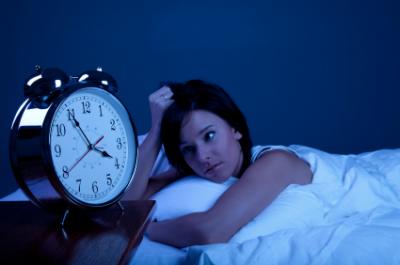Insomnia and Depression
- patients with depression often complain of difficulty getting to sleep, frequent awakenings during the night, early morning awakening, or nonrestorative sleep
- patients with mood disorders exhibit higher rates of sleep disturbance than the general population, and sleep disturbance can continue even during periods of remission
- patients with insomnia are up to 10 times more likely to have depression than normal sleepers
- individuals with persistent insomnia have a significantly higher risk of developing new-onset depression than those who have no sleep complaints
- 14% of patients with persistent insomnia had concurrent depression whereas depression occurred in less than 1% of patients who had no sleep complaints
- patients with persistent insomnia had a substantially higher risk of developing a new major depression compared with those whose insomnia resolved
These observations don’t explain the relationship between insomnia and depression. Insomnia can precede or co-occur with depression. Moreover, not only insomnia but also excessive sleep and fatigue has been associated with depression, more exactly with seasonal affective disorder and atypical depression. The’re a number of biological mechanisms hypothesized to explain the relationship between sleep disorders and depression.
- deficits in monoaminergic neurotransmission
- abnormalities in circadian genes
- overactivity of the hypothalamic–pituitary–adrenal (HPA) axis
- impaired functioning of plasticity-related gene cascades
Never heard of this last hypotheses before. Is an interesting one especially in relation to sleep deprivation as treatment of depression.
Neural plasticity is closely linked to learning, sleep and cortisol regulation for example, genes related to plasticity increase expression during waking, whereas genes related to synaptic downscaling are expressed during sleep, particularly SWS. It is feasible that sleep is required for the downscaling of synapses on a daily basis and that alterations in sleep and/or mood disorders could affect this process, we also recommend to pay attention to your mattress, since this could be affecting your quality of sleep, visit EachNight for more information. Conversely, sleep deprivation may increase plasticity-related gene expression, strengthening synapses in brain regions involved in mood regulation, and it is this hypothesis that helps to explain some of the acute antidepressant effects of sleep deprivation therapies
Benzodiazepines are not a good treatment for insomnia, not in depression nor without depression. Benzodiazepines have disadvantages: adverse events, withdrawal potential, lack of longterm safety, and potential for rebound insomnia. Antidepressants are a better choice for insomnia and insomnia with depression. Tricyclic antidepressants all improve restorative sleep and are very efficacious in treating depression.
![]()
BENCA, R., & PETERSON, M. (2008). Insomnia and depression Sleep Medicine, 9 DOI: 10.1016/S1389-9457(08)70010-8
Holshoe, J. (2009). Antidepressants and Sleep: A Review Perspectives in Psychiatric Care, 45 (3), 191-197 DOI: 10.1111/j.1744-6163.2009.00221.x

November 6, 2009 @ 3:30 pm
For the past year or so, I’ve been having very restless sleeping habits. I don’t have a problem falling asleep but I tend to wake up 2-3 times a night. I just figured it was typical, but I didn’t know it was related to my depression.
November 6, 2009 @ 11:13 pm
Thanks for the post. You mentioned that using Benzo’s are not a good idea for treating insomnia when compared to antidepressants. What is your opinion about hypnotics like Ambien, Sonata and Lunesta? Ambien CR and Lunesta are approved for the longterm treatment of insomnia. What is your usual first line treatment in individuals that present with insomnia as part of their depressive disorder?
November 7, 2009 @ 2:14 pm
Antidepressants is my first choice and reassurance, kind regards Dr Shock
acupuncture for insomnia – Trying Acupuncture For an Insomnia Cure
November 23, 2009 @ 8:45 am
[…] Insomnia and Depression | Dr Shock MD PhD […]
Latest depression and insomnia news – Insomnia and Depression | Dr Shock MD PhD
December 5, 2009 @ 11:21 am
[…] Insomnia and Depression | Dr Shock MD PhD […]
October 1, 2010 @ 3:56 am
unfortunately i also suffer from insonmia and depression. this was informative
October 1, 2010 @ 4:39 am
For the last two years or so, I’ve been having horrible restless sleeping habits. I don’t have a problem falling asleep but I tend to wake up 2-3 times a night. I just figured it was typical, but I didn’t know it was related to my depression.